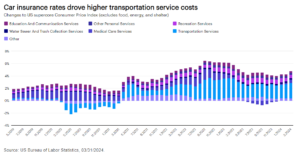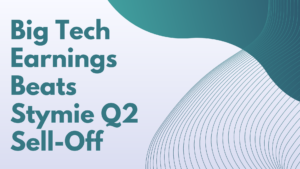ZINGER KEY POINTS
- Arm Holdings’ initiatives target a drastic cut in the energy drain as AI could consume up to a quarter of U.S. power by decade’s end.
- The chip maker partners with SoftBank in a $110 million U.S.-Japan effort to fuel efficient AI innovations.
Without improved energy efficiency, artificial intelligence (AI) data centers could potentially reach a quarter of the U.S. power requirements by the end of the decade.
The stark warning came from Arm Holdings plc CEO Rene Haas on Tuesday as the chip-design giant and its parent company, SoftBank Group, pledge $25 million to help fund a $110 million initiative aimed at supporting AI research at universities across the U.S. and Japan.
The Rising Cost of AI’s Electricity Demand
As reported by the Wall Street Journal, Arm is now setting its sights on reducing the power consumption of artificial intelligence technologies.
According to Haas, AI models, including OpenAI’s ChatGPT, require substantial electricity, which could lead AI data centers to consume 20% to 25% of U.S. power needs by 2030, a significant increase from today’s 4% or less.
These models require an “insatiable” amount of electricity to operate effectively, said Haas. “The more information they gather, the smarter they are, but the more information they gather to get smarter, the more power it takes,” he said, according to WSJ.
The International Energy Agency underscored the issue in a recent report, noting that a single interaction with ChatGPT uses nearly 10 times the electricity of an average Google search.
Seeking Sustainable Solutions
With the alarming increase in power requirements, Haas emphasized the challenge of advancing AI research without more efficient energy solutions.
The U.S.-Japan research collaboration, receiving funds from Arm, will involve Carnegie Mellon University and Keio University, focusing on innovative ways to curb electricity use.
This AI initiative is part of a larger strategy by U.S. ambassador to Japan, Rahm Emanuel, who previously orchestrated a $150 million U.S.-Japan quantum computing research program.
Alongside Arm, major tech players such as Amazon.com Inc.and Nvidia Corp. are also investing in the initiative, with commitments to support additional research efforts in Washington and Tsukuba, Japan.
Emanuel pointed out the strategic importance of U.S.-Japan cooperation in AI and quantum computing as a counterbalance to China’s aggressive tech policies, which he argues stifle entrepreneurship.
—
Originally Posted April 9, 2024 – AI Could Consume 25% Of US Power By 2030: ‘The More Information They Gather… The More Power It Takes,’ Warns Arm CEO
Disclosure: Benzinga
© 2022 Benzinga.com. Benzinga does not provide investment advice. All rights reserved.
Disclosure: Interactive Brokers
Information posted on IBKR Campus that is provided by third-parties does NOT constitute a recommendation that you should contract for the services of that third party. Third-party participants who contribute to IBKR Campus are independent of Interactive Brokers and Interactive Brokers does not make any representations or warranties concerning the services offered, their past or future performance, or the accuracy of the information provided by the third party. Past performance is no guarantee of future results.
This material is from Benzinga and is being posted with its permission. The views expressed in this material are solely those of the author and/or Benzinga and Interactive Brokers is not endorsing or recommending any investment or trading discussed in the material. This material is not and should not be construed as an offer to buy or sell any security. It should not be construed as research or investment advice or a recommendation to buy, sell or hold any security or commodity. This material does not and is not intended to take into account the particular financial conditions, investment objectives or requirements of individual customers. Before acting on this material, you should consider whether it is suitable for your particular circumstances and, as necessary, seek professional advice.


























Join The Conversation
If you have a general question, it may already be covered in our FAQs. If you have an account-specific question or concern, please reach out to Client Services.